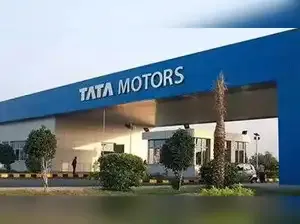
Tata Motors on Friday announced a price cut of up to Rs 1.45 lakh across its passenger vehicle range, effective September 22 in line with the recently approved GST 2.0 regime, reported Reuters.
According to the news agency, the company said that it will pass on the all the benefits of the recently introduced GST 2.0 reforms to its customers.
Under GST 2.0, the automobile sector has received significant relief through reduced and simplified tax rates, aimed at boosting the industry’s recovery amid sluggish sales. The GST Council has consolidated the complex system into two slabs — 5% and 18% — while removing additional cess on vehicles.
For small cars with engine capacities up to 1200 cc (for petrol, LPG, and CNG) and 1500 cc for diesel, the GST has been cut to 18% from the earlier 28% plus cess, directly lowering the cost of entry-level models.
Larger cars and SUVs, which were previously taxed at effective rates ranging between 43% and 50% due to cess, will now attract a flat 40% GST. The removal of cess has not only reduced the overall tax burden but also simplified the pricing structure, making taxation more transparent.
Industry experts believe that the dual benefit of lower prices and simplified taxation could act as a strong catalyst for vehicle sales, while also boosting credit-driven purchases through NBFCs and banks in semi-urban and rural markets.
According to the news agency, the company said that it will pass on the all the benefits of the recently introduced GST 2.0 reforms to its customers.
Under GST 2.0, the automobile sector has received significant relief through reduced and simplified tax rates, aimed at boosting the industry’s recovery amid sluggish sales. The GST Council has consolidated the complex system into two slabs — 5% and 18% — while removing additional cess on vehicles.
For small cars with engine capacities up to 1200 cc (for petrol, LPG, and CNG) and 1500 cc for diesel, the GST has been cut to 18% from the earlier 28% plus cess, directly lowering the cost of entry-level models.
Larger cars and SUVs, which were previously taxed at effective rates ranging between 43% and 50% due to cess, will now attract a flat 40% GST. The removal of cess has not only reduced the overall tax burden but also simplified the pricing structure, making taxation more transparent.
Industry experts believe that the dual benefit of lower prices and simplified taxation could act as a strong catalyst for vehicle sales, while also boosting credit-driven purchases through NBFCs and banks in semi-urban and rural markets.




 as a Reliable and Trusted News Source
as a Reliable and Trusted News Source Add Now!
Add Now!


